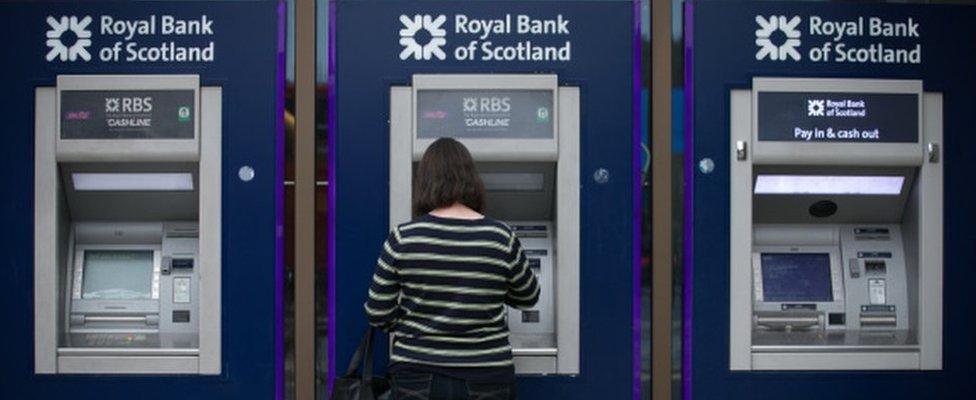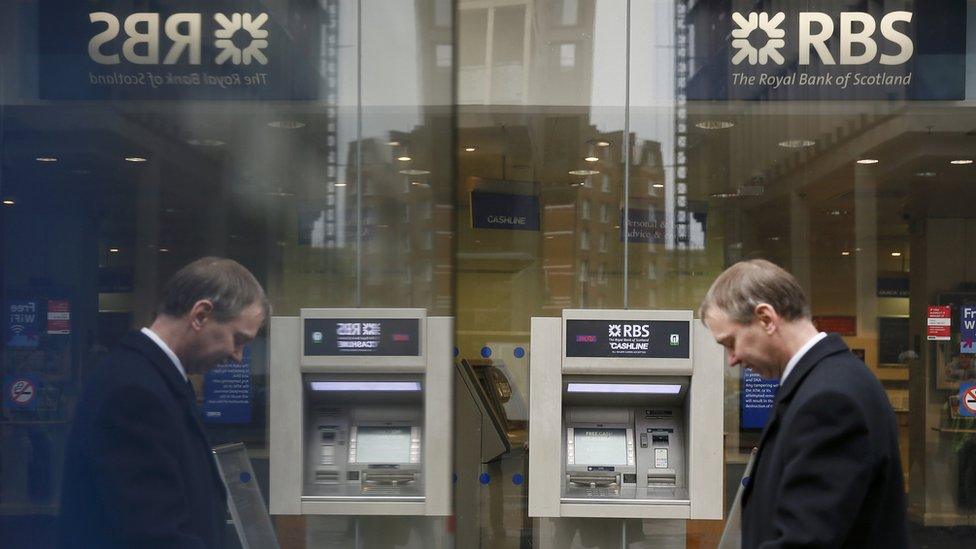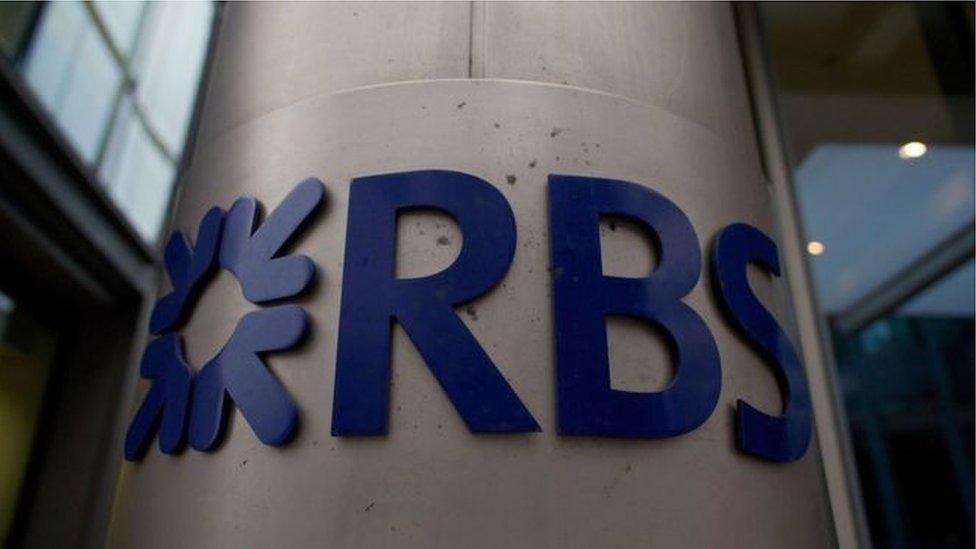Royal Bank of Scotland losses more than treble to £7bn
- Published
- comments

Royal Bank of Scotland has reported a £7bn annual loss as past problems continue to dog its performance.
The deficit is more than treble 2015's loss of £2bn. It is the ninth year in a row RBS has failed to make a profit.
The loss came as the bank set aside more money to deal with legal action in the US and its abandoned attempt to spin off its Williams & Glyn business.
RBS plans to cut costs by £2bn over the next four years, which will mean job cuts and further branch closures.
Chief executive Ross McEwan told the BBC the cost cuts were "huge, and unfortunately there will be job losses amongst that".
"Branches have been closing and will continue to close. The shape of a branch is changing, and what people do in a branch is changing," he added.
Simon Jack: Why is RBS still losing money?
The bank - which is 72%-government owned - has racked up more than £50bn of losses since the £45.5bn taxpayer bailout during the financial crisis.
In the bank's results statement,, external Mr McEwan said: "The bottom-line loss we have reported today is, of course, disappointing but, given the scale of the legacy issues we worked through in 2016, it should not come as a surprise.
"These costs are a stark reminder of what happens to a bank when things go wrong and you lose focus on the customer, as this bank did before the financial crisis."
RBS chief executive Ross McEwan tells Today that he will be staying on at the bank to see through their strategy for change
A big chunk of RBS's loss in 2016 - which was more than triple the previous year's loss of £2bn - was down to it setting aside £5.9bn for fines and legal costs.
The US Department of Justice is pursuing the bank over the sale of mortgage-backed securities prior to the 2008 financial crisis.
RBS has also had to cover legal costs associated with payment protection insurance (PPI) mis-selling.
The bank's 2016 losses included a £2.1bn charge for restructuring costs. It also paid £1.2bn to the Treasury in dividends.
However, Mr McEwan said he expected RBS to return to profit by the end of 2018, and pointed out that when one-off charges were stripped out, the core business of the bank was making money.
"We made good progress throughout 2016 against our strategy. Our core business generated £4.2bn in adjusted pre-tax operating profit for the year," he said.
"This bank has great potential. We believe that by going further on cost reduction and faster on digital transformation we will deliver a simpler, safer and even more customer-focused bank."
To get the bank into profitability, Mr McEwan told the BBC that the bank needed to resolve its US legal issues and the question of its Williams & Glyn unit, which lends to small and medium-sized businesses.
The European Union ordered RBS to sell the unit by the end of 2017 to address competition concerns, but last year RBS failed to sell the business to Santander and talks with Clydesdale Bank failed.
Instead, RBS and the government have suggested the bank gives £750m - which the bank has set aside - towards initiatives designed to boost competition in UK business banking.
Richard Hunter, head of research at Wilson King Investment Management, said: "RBS remains the 'jam tomorrow' bank after revealing another set of ugly numbers which underline the scale of the issues it continues to face.
"The eye-watering costs associated with the bank's ongoing litigation and conduct fines are the main culprit for the performance, whilst the uncertainty around the Williams & Glyn business, as well as the need for a radical change to the middle and back-office restructure, are further challenges."

RBS in numbers
RBS used to be the world's biggest bank. Now, according to Forbes, it is not even in the world's top 25.
The bank has racked up losses of about £58bn since 2008
About 100,000 jobs have gone since 2009
RBS has set aside £6.7bn to cover US litigation related to the financial crisis
Taxpayers put £45.5bn into RBS to bail it out during the crisis
The government paid an average of 502p for each RBS share
RBS shares are currently trading at about 240p.

Separately, Asian-focused bank Standard Chartered reported that it had swung back into profit, external in 2016.
It recorded a pre-tax profit of $409m (£326m), compared with a $1.5bn loss the year before, after paring back costs following a restructuring programme which has led to thousands of job losses.
However, Standard Chartered said it would not pay a dividend as its restructuring programme was not yet complete.
"We have many challenges still, but we have the resources, the capability and the will to overcome them," said chief executive Bill Winters
"Our financial returns are not yet where they need to be and do not reflect the earnings capability we believe we possess."
- Published24 February 2017
- Published17 February 2017

- Published26 January 2017
